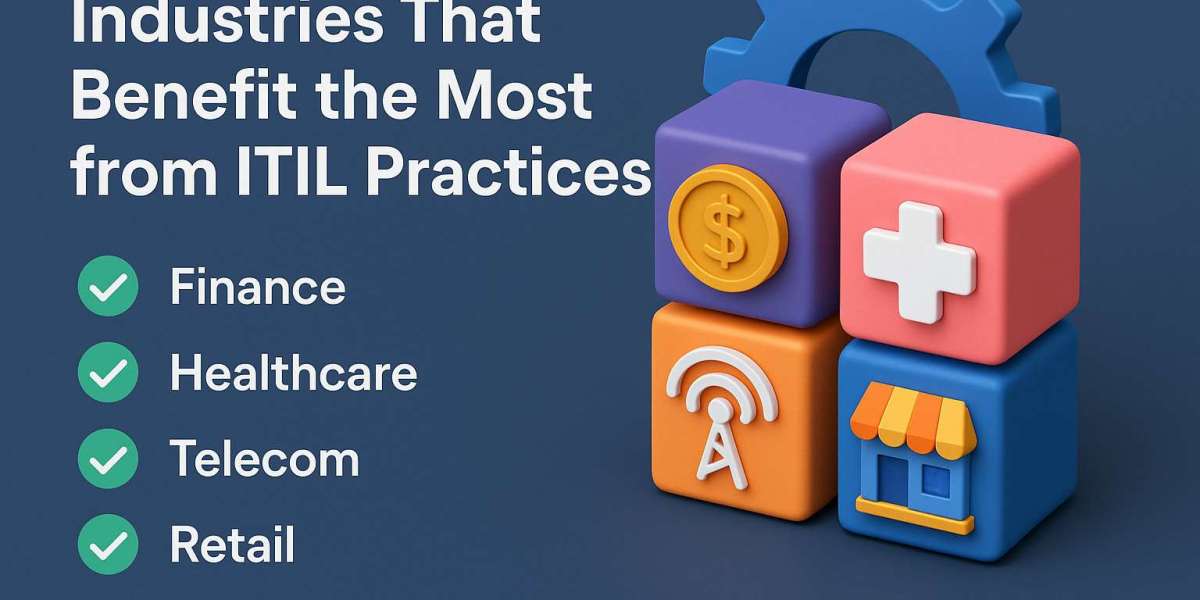In today’s fast-paced digital world, organizations across industries need structured frameworks to deliver seamless IT services while meeting customer expectations. The ITIL Certification framework has become a global standard for IT service management, helping businesses streamline processes, improve service quality, and align IT with business goals. Among its different levels, the ITIL 4 Foundation course is often the starting point, equipping professionals with the fundamentals of ITIL practices. Let’s explore the industries that gain the most from adopting ITIL.
1. Information Technology and Software Development
The IT industry is the most obvious beneficiary of ITIL 4 Certification. Software companies and IT service providers often face challenges like downtime, inefficient workflows, and unclear communication channels. ITIL practices ensure that incident management, change control, and continuous service improvement are well-structured. This leads to fewer service disruptions, higher productivity, and improved customer satisfaction.
2. Banking and Financial Services
Banks and financial institutions handle sensitive data, high transaction volumes, and regulatory compliance requirements. Any IT service disruption could lead to major losses and customer dissatisfaction. By leveraging ITIL frameworks, these organizations can build reliable IT systems, strengthen risk management, and ensure compliance. Professionals with ITIL 4 Foundation knowledge play a vital role in keeping critical financial services stable and secure.
3. Healthcare and Pharmaceuticals
Healthcare relies on technology-driven systems like electronic health records, diagnostic software, and telemedicine platforms. Service downtime can directly impact patient care. With ITIL practices, hospitals and pharmaceutical companies can ensure systems are available, secure, and efficient. This enhances patient safety, improves staff coordination, and ensures compliance with healthcare regulations.
4. Telecommunications
Telecom providers deal with massive customer bases and complex service infrastructures. Service outages or poor support can damage customer trust. Implementing ITIL practices allows telecom companies to optimize network performance, improve service delivery, and handle incidents more effectively. Employees with ITIL 4 Certification can design service strategies that reduce downtime and enhance customer experiences.
5. Government and Public Sector
Governments worldwide are modernizing IT services to provide efficient citizen services. Public sector organizations often face challenges in managing resources, ensuring accountability, and delivering digital services. ITIL practices bring transparency, standardization, and efficiency to these services, making them more reliable for citizens.
6. Retail and E-Commerce
E-commerce platforms and retail businesses rely on smooth digital operations to serve millions of customers daily. ITIL practices ensure that IT systems supporting payment gateways, customer support, and logistics remain stable and scalable. Professionals trained through ITIL 4 Foundation can help these businesses maintain uptime during peak demand and deliver consistent customer experiences.
Conclusion
Industries across IT, banking, healthcare, telecom, government, and retail have embraced ITIL to improve service quality, minimize risks, and enhance customer satisfaction. Whether you’re starting your journey with ITIL 4 Foundation or advancing with higher levels of ITIL Certification, the framework provides the tools and knowledge to create efficient, reliable, and future-ready IT services.



